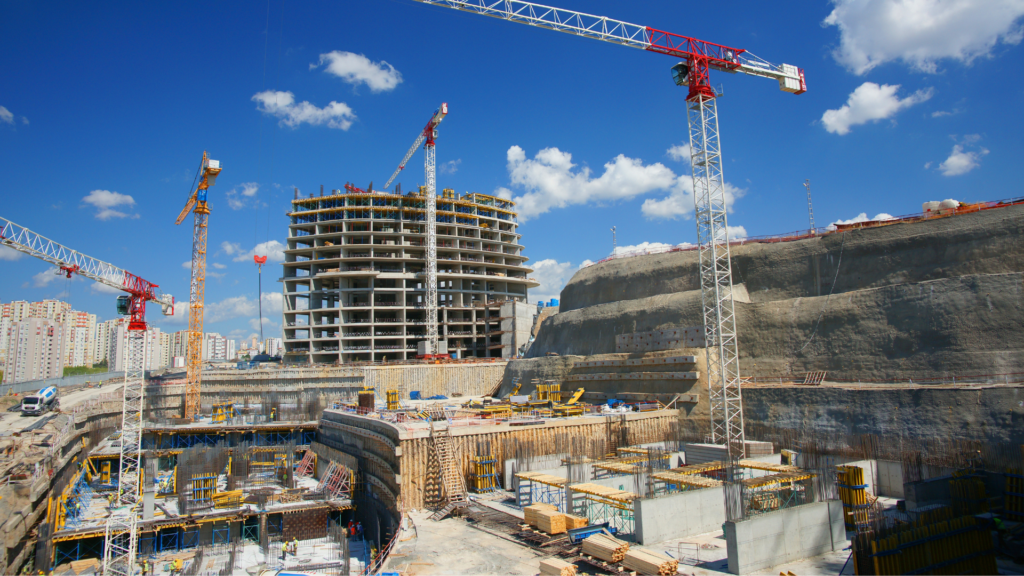Call us now:
How is the authority to resolve construction contract disputes in Vietnam determined?

The law on construction contracts in Vietnam
Construction contracts in Vietnam are considered a type of civil contract. Therefore, the legal framework governing the formation and execution of construction contracts includes:
1/ The Civil Code of 2015
2/ The Construction Law of 2014
3/ Amendments to the Construction Law in 2020
4/ The Commercial Law of 2005
5/ Government Decree 37/2015/NĐ-CP detailing construction contracts
6/ Government Decree 50/2021/NĐ-CP amending and supplementing certain provisions of Government Decree 37/2015/NĐ-CP detailing construction contracts.
Disputes in Executed Construction Contracts
Disputes in executed construction contracts are legal conflicts between one party, either the investor or homeowner, and the other party, the construction contractor. Disputes in executed construction contracts typically involve the following types of disputes:
Disputes over project timelines and progress
When the construction contractor fails to complete the project as agreed upon in terms of timing and schedule, it can lead to various damages for the investor or homeowner. For example, increased management costs or missed business opportunities.
Delays in construction progress can occur for various reasons, including natural disasters, limited contractor capacity, labor safety violations, contractor insolvency, changes in project scope, new government policies, or delays in site handover by the investor.
For events beyond the contractor’s control (such as natural disasters or changes in government policies), the contractor is exempt from liability. However, the contractor is typically required to promptly notify the investor of the force majeure event and provide supporting documentation.
In cases where the delays result from errors on the investor’s part (late site handover, failure to provide utilities and materials, or changes in construction scope), the contractor is not responsible for schedule delays. These issues should be specifically addressed in the construction contract and/or its appendices through mutual agreement.
If delays are due to the contractor’s fault (such as lack of capacity, insolvency, labor safety violations), the contractor is responsible for rectifying the situation, compensating for damages, and facing penalties as specified in the construction contract.
Disputes over construction quality
During or after construction, disputes may arise regarding the quality of the completed project. The contractor may claim that they followed the design specifications, while the investor or homeowner may assert that the construction did not meet technical standards.
Therefore, when drafting and signing construction contracts, both parties must agree in detail on the desired quality of the project. The more detailed and specific the agreement, the less likely disputes will arise during execution. Avoid vague agreements such as “comply with design specifications” or “according to industry standards.”
Parties should also agree on methods of dispute resolution in case the project does not meet the desired quality (such as timeframes for rectification, costs of rectification, unilateral contract termination, etc.).

Disputes over contract payments
In practice, there are cases where a completed construction project faces delays in the acceptance process by the investor or homeowner, leading to delays in payments as per the contract. Additionally, financial difficulties on the part of the investor or homeowner can lead to delayed payments to the contractor.
If the investor or homeowner delays payments as per the contract, the contractor has the right to demand additional interest payments for the period of delay, as agreed upon in the contract. The interest rate is typically determined through mutual agreement in the contract.
Authority to Resolve Construction Contract Disputes
Resolving construction contract disputes through a Dispute Resolution Board
This method is applied when both parties agree in the construction contract. The Dispute Resolution Board consists of experts in the construction field. The issues addressed by the Dispute Resolution Board are typically technical matters related to the construction project. The decision of the Dispute Resolution Board serves as a reference for the disputing parties. If either party disagrees with the resolution of the Dispute Resolution Board, they have the right to bring the dispute to court or arbitration, as per the agreement in the construction contract.
Resolving construction contract disputes through a People’s Court
Any party involved in a construction contract dispute can file a lawsuit in the competent People’s Court to resolve the dispute. In the lawsuit, the plaintiff must provide a clear account of the contract formation and execution process, the defendant’s violations, and the plaintiff’s demands. The lawsuit must be accompanied by a copy of the construction contract and supporting documents and evidence to substantiate the defendant’s violations and the plaintiff’s claims. The court’s judgment or decision has legal force and is binding on the parties involved in the dispute.
Resolving construction contract disputes through Commercial Arbitration
If the construction contract specifies arbitration as the dispute resolution method, or if the parties agree to submit the dispute to commercial arbitration after a dispute arises, then commercial arbitration has jurisdiction over the dispute. The arbitration award is final and binding on the disputing parties.
Contact Us Now:
DCNH LAW
Address: 38B Tran Nhat Duat, Phuoc Hoa ward, Nha Trang city, Khanh Hoa province, Vietnam.
Phone: (+84) 343320223 – 974278893
Email: dcnh.law@gmail.com


